Members of the Consolata Missionaries have embraced the apostolate to the periphery through “the charism of non-Christians”.
“We are already living his legacy as Consolata missionaries, Consolata lay people, and all the people who are living the charism of Consolata missionaries, which is the charism of non-Christians,” Fr. James told ACI Africa referring to St. Allamano, who was Canonized alongside 13 others on October 20.
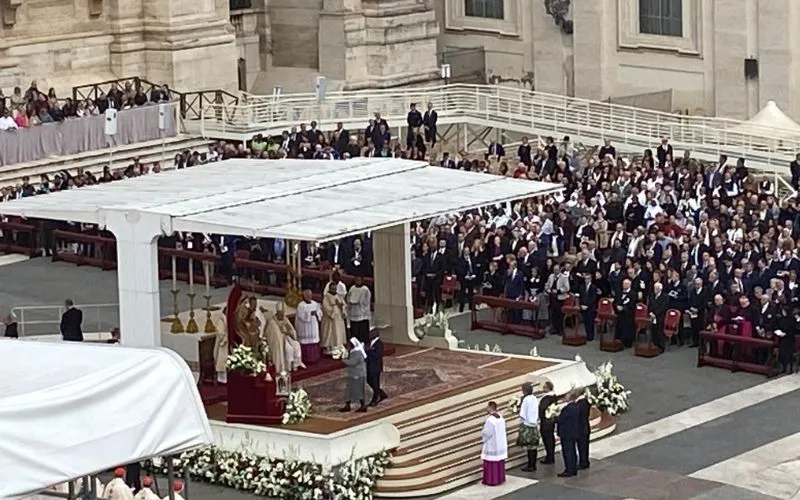 Credit: ACI Africa
Credit: ACI Africa
He added, “We are always there at the periphery, getting out from the big cities ... (to) where people are always in the periphery, or they are not well treated. Now, the legacy is always to continue with that charism, which he himself (St. Allamano) actually got from the Holy Spirit.”
The IMC Superior General highlighted the oft-cited teaching of Allamano, “first saints, then missionaries”, as important for Consolata Missionaries.
(Story continues below)
“You have, first of all, to internalize the love of God within yourself ... and the word of God becomes part and parcel of you. So, when you go and become a missionary, you are already a person who has faith,” he explained, alluding to communion and mission that the Synod on Synodality promotes.
Canonization of Allamano fostering Synodality
For Fr. James, the Canonization of Allamano provides an opportunity to foster the spirit of walking together in the mission.
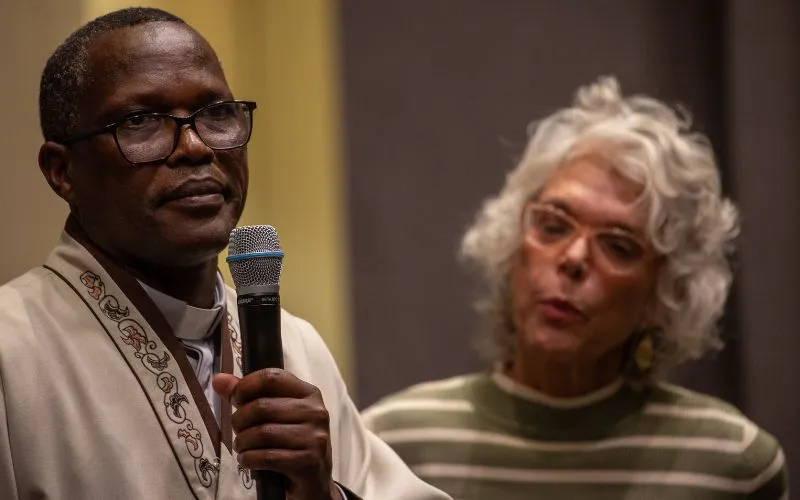 Credit: Daniel Ibáñez
Credit: Daniel Ibáñez
The event of the Canonization of Blessed Allamano, he said, “gives us that kind of impetus to renew ourselves according to the charism, to the essentials that actually he (Allamano) has started in the church.”
“But for us, in this century, what does it mean to renew ourselves, to make ourselves new in the new status of being a saint?” the IMC Superior General posed, adding that the post-Canonization renewal for Consolata Missionaries is about exploring how they can get better in “our way of evangelization, in our way of living our religious and Christian vows together with others.”
Alluding to the Synodality spirit, Fr. James said that the “impetus” to renewal that the Canonization generates also concerns the need for Clergy and women and men Religious to foster a collaborative approach to mission, allowing “lay people to offer testimonies of the word of God.”
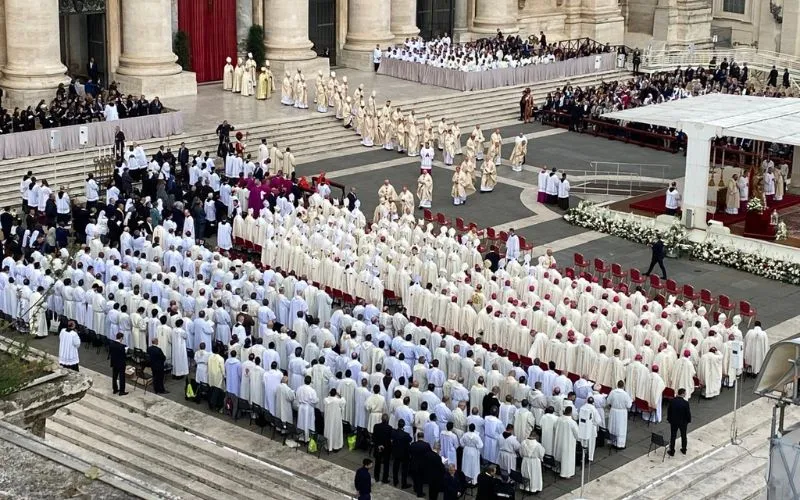 Credit: ACI Africa
Credit: ACI Africa
“We can actually work together as a church ... without using any big titles or speaking about peace and justice, (but) speaking about solidarity,” Fr. James emphasized, adding that this is the call of the Synod on Synodality.
He said that the Consolata Missionaries, present in 40 countries across the globe, have “always” embraced Synodality.
“For us Religious, the way of seeing things together has always been there in our local meetings, in our Provincial meetings, and then going to the General Council level,” Fr. James said, adding that being an Institute that is centralized, “everything starts from the local community, where two missionaries are present in the working place, and that's how things come up to the General Council level; then we talk together.”
For those who have resisted the spirit of Synodality that calls, he said, “you either change willingly and responsibly, or change will come and change you forcefully and badly.”
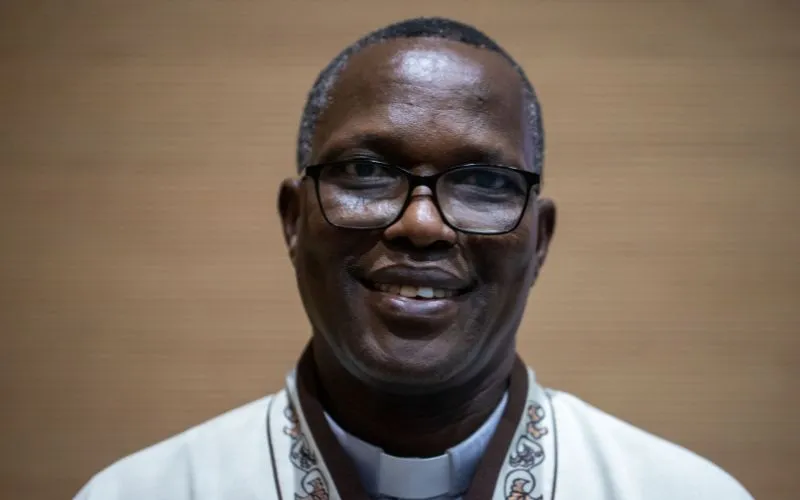 Credit: Daniel Ibáñez
Credit: Daniel Ibáñez
Africa sending missionaries as Synodality
Fr. James reflected on the trend of the Church in Africa contributing to the mission of the Church across the globe as part of Synodality.
He said that for the last 12 years, the Institute has not had “any vocation from Europe”, which he described as “the mother church” and “the founding church”.
“Now the vocations are in Africa, which was the sibling church some centuries ago; now the sibling church is trying to send missionaries to the mother church,” the Kenyan-born pioneer African IMC Superior General told ACI Africa during the October 17 interview at EWTN Vatican bureau in Rome.
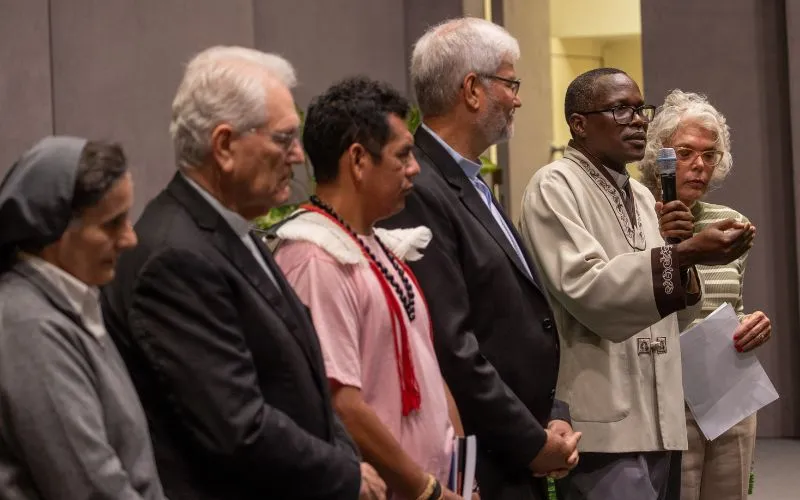 Credit: Daniel Ibáñez
Credit: Daniel Ibáñez
Asked about his experience as the pioneer African Superior General in the Institute that St. Allamano founded in 1901, Fr. James said, “Well, it's a good question. But it's not easy; it's not easy.”
Fr. James, who had served as IMC Vice Superior General from 2017 before he was elected Superior General during the IMC 14th General Chapter on 12 June 2023 for a six-year mandate said that as a leader, he has worked in collaboration with others, and fostered listening, an important component of the Synod on Synodality.
The General Superior does not do everything, he said, and added, “The General Superior has to listen to his missionaries, has to listen to everybody who is there. And together, we choose a way that is actually conforming to what we are.”
“For us, it's the Institute which is at the center of us ... (the) Institute is bigger and greater than each one of us,” Fr. James said, and to emphasize, observed that the Institute remains while individual Consolata Missionaries “die”.
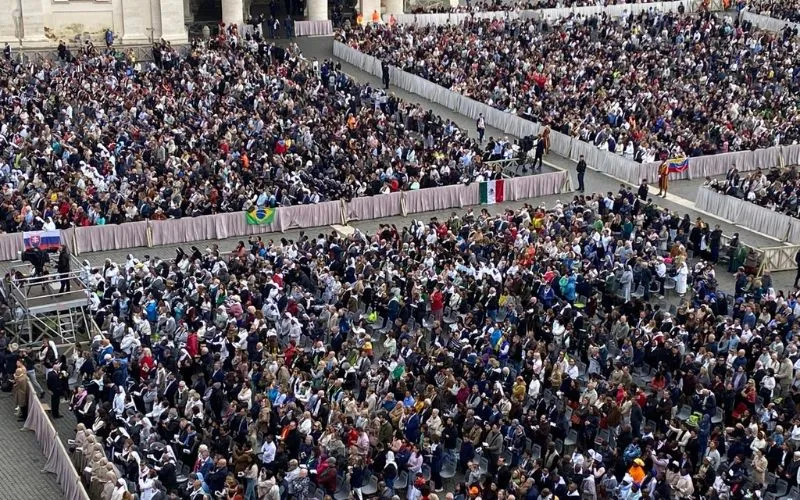 Credit: ACI Africa
Credit: ACI Africa
He implored for “strength” and “enthusiasm” among Consolata Missionaries as they celebrate the Canonization of their founder, drawing inspiration from the experience of the Apostles, who, after Pentecost, had “the passion to get out and face the world outside.”
Shunning fear and striving to “be witnesses” of the Gospel message, Fr. James appealed to Consolata Missionaries, “Let us go; let us leave our cultures behind and let us always concentrate on the Word of God.”
Focusing on the Word of God, he said, “will help us to be human beings and to accompany other human beings wherever we get them ... that's also our courage, to get out of our places of birth and to go and continue this legacy of our founder.”
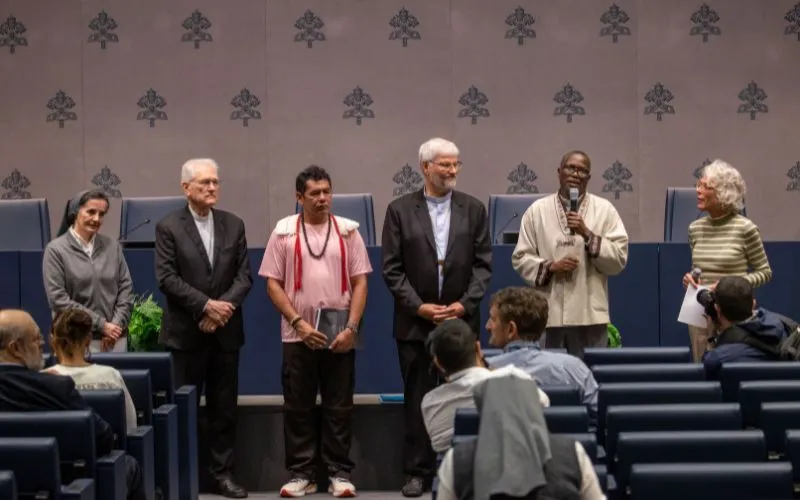 Credit: Daniel Ibáñez
Credit: Daniel Ibáñez
Synodality in eSwatini
In a separate interview, Bishop José Luís Gerardo Ponce de León of the Catholic Diocese of Manzini in the Kingdom of eSwatini shared about the manifestations of Synodality in his Episcopal See.
The Local Ordinary of the only Catholic Diocese of the Southern African landlocked nation previously known as Swaziland recalled the beginning of his Episcopal Ministry in Manzini, when he was transferred from South Africa’s Vicariate of Ingwavuma in November 2023 and installed in January 2014.
“I had never worked in the then Swaziland,” the Argentinian-born IMC member told ACI Africa during the October 17 interview at the EWTN Vatican bureau in Rome, and added, “It was very challenging ... to be the only Bishop (appointed) in a country where you have never been before.”
While eSwatini borders South Africa, Bishop José noted that the two countries are “two different worlds. We never had the history of apartheid, for example. Never. I think that is one of the cases in which a border can make such a difference.”
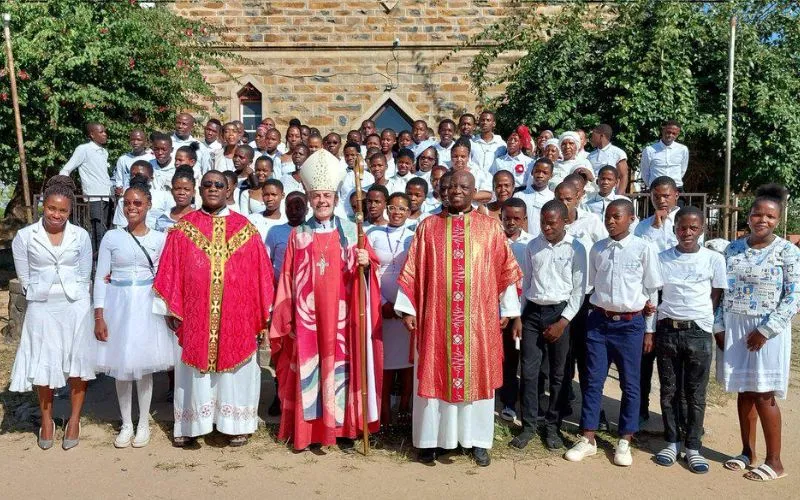 Credit: Consolata Missionaries
Credit: Consolata Missionaries
“But what was key for me, I would say, the Clergy really welcomed me. They had never seen me ... They didn't really know how I worked, but they have been the ones helping me find the way as the Bishop in eSwatini,” he said, alluding to Synodality in his Episcopal See.
He said that while the transition from Ingwavuma to Manzini was made better by the proximity of the Zulu and Swazi languages respectively, “when I had to remain in eSwatini, it was through the Clergy particularly that I was able really to take the service.”
“We have a very good local Clergy. We were born out of the work of the Servites, Servants of Mary, and then came the Salesians (of Don Bosco) over 60 years ago. And then the local clergy developed and very strong, very open to work with others,” Bishop José shared.
Alluding to the spirit of communion, participation and mission in the one Catholic Diocese Southern African nation, he went on to say, “Our Diocese never ever had tensions between Diocesan and Religious Priests. On the contrary, even when in the last maybe seven, eight years, male Religious communities arrived in the Diocese, they welcomed them with open arms. Thanks to these new communities, I was able to send the local Clergy for further studies.”
Synodality in eSwatini is also manifested in the ministry towards the sick through health facilities under the auspices of the Catholic Church, the IMC Bishop said, adding, “People trust them; they know the way we care for the people.”
“The CEO of the hospital is not Catholic, but he clearly understands what his role is. And this has really marked our presence,” he said. A hospice that was “born at the time of HIV/AIDS” in the Southern African nation is also an opportunity for Synodality.
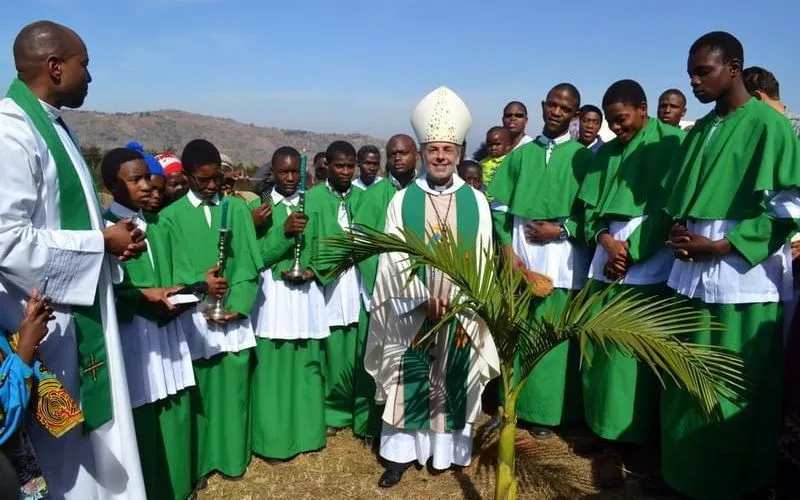 Credit: Consolata Missionaries
Credit: Consolata Missionaries
“Today, eSwatini is probably the best country in the world dealing with AIDS. In this, we have never failed. When the life expectation had gone down to probably 39 years old, today has recovered really so much,” the Catholic Church leader told ACI Africa.
He lauded the political leadership of eSwatini for the collaboration in running the hospice, saying, “in this, the government has been very, very faithful. So that hospice was born when AIDS was a death sentence. People were going to die with dignity. Now, that is no longer so. But people still need that place for care; and we have people on the waiting list.”
Education has also demonstrated Synodality in eSwatini, where the Catholic Church has 60 institutions of learning, which Bishop José said are “financed by His Majesty's government, but the leadership is in our hands. We have 47 primary schools and 13 high schools.”
He lauded the service of women Religious and the collaboration between the various Institutes of Consecrated Life and Societies of Apostolic Life (ICLSAL) in Manzini Diocese, describing them as “amazing, amazing, lovely communities.”
“We have 17 Parishes and 100 chapels. In 13 of these Parishes, there are Priests and Sisters,” Bishop José said, and acknowledged with appreciation the spirit of Synodality in the Parishes.
During his visits, “I was very, very joyful about how Priests naturally recognized, appreciated the presence and the work of the Sisters,” he testified, and added in reference to the service of women Religious, “It's a silent work, but the Priests had really recognized how important it is.”
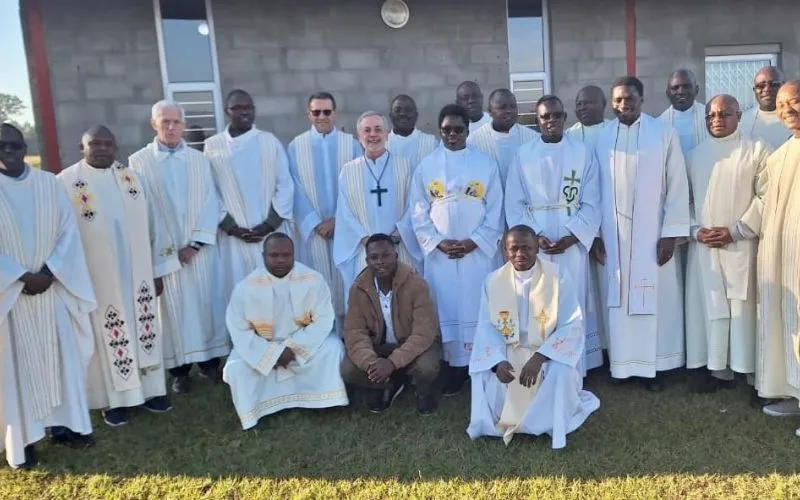 Credit: Consolata Missionaries
Credit: Consolata Missionaries
“I remember a priest who was saying ... ‘you know, Bishop, where I was before, there were no sisters. I see the difference now.’ He said, I feel much more relaxed because of their presence. I'm not working alone anymore,” the Consolata Missionary Bishop said, emphasizing the reality of Synodality in eSwatini.
He also recognized the impact of the women Religious in bringing Holy Communion to the people of God in the various Chapels, where Priests are not able to go every Sunday.
“When I came to hear that the Sisters were doing this, I wasn't aware ... I said, for God's sake, this is amazing; this is beautiful. And the Priests are delighted, are happy; they fully support them. So, I am enjoying that type of working together,” Bishop José told ACI Africa during the October 17 interview.
ACI Africa was founded in 2019. We provide free, up-to-the-minute news affecting the Catholic Church in Africa, giving particular emphasis to the words of the Holy Father and happenings of the Holy See, to any person with access to the internet. ACI Africa is proud to offer free access to its news items to Catholic dioceses, parishes, and websites, in order to increase awareness of the activities of the universal Church and to foster a sense of Catholic thought and culture in the life of every Catholic.
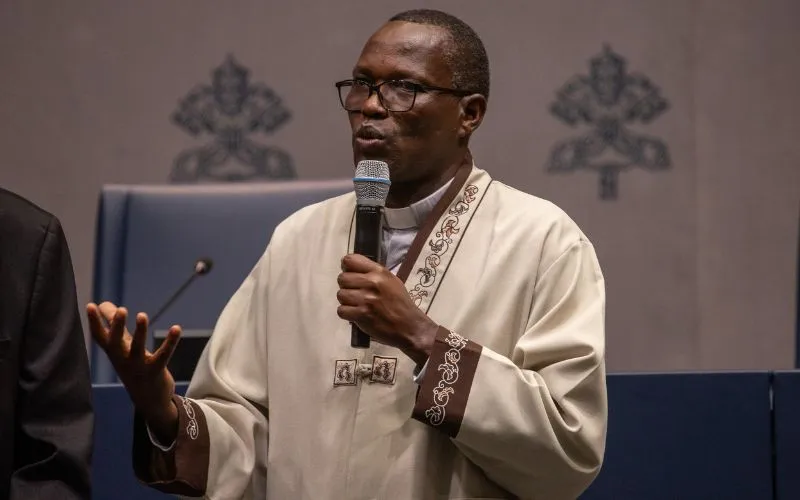 Fr. James Bhola Lengarin. Credit: Daniel Ibáñez
Fr. James Bhola Lengarin. Credit: Daniel Ibáñez


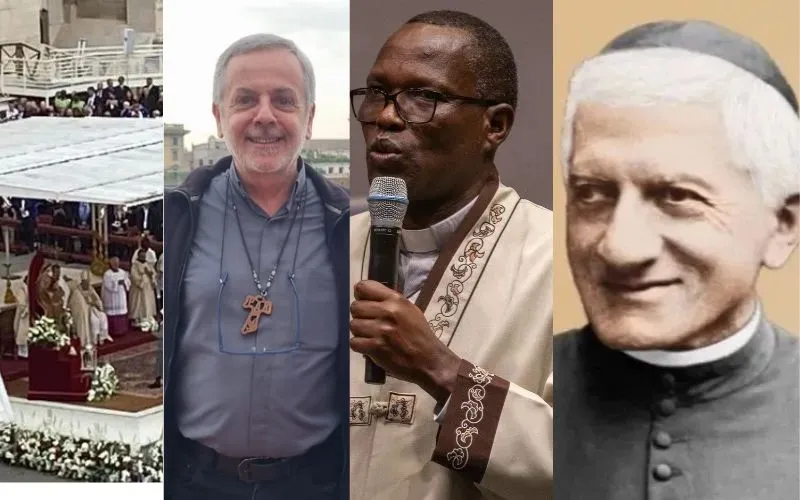
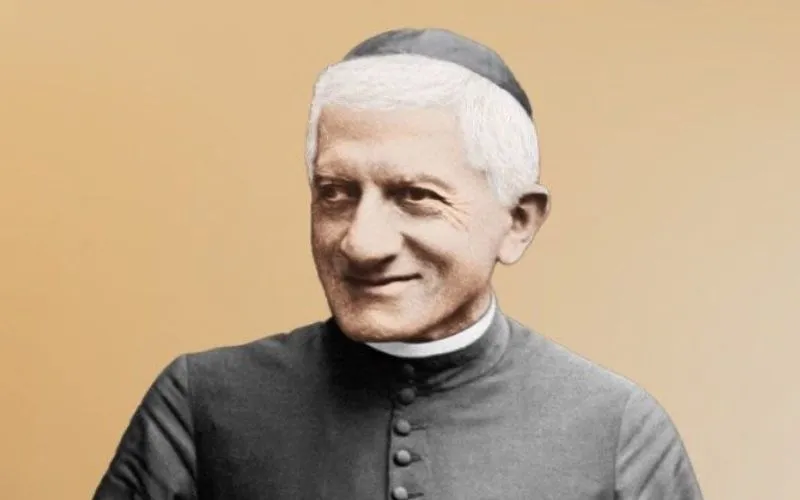 Blessed Joseph Allamano. Credit: Vatican Media
Blessed Joseph Allamano. Credit: Vatican Media
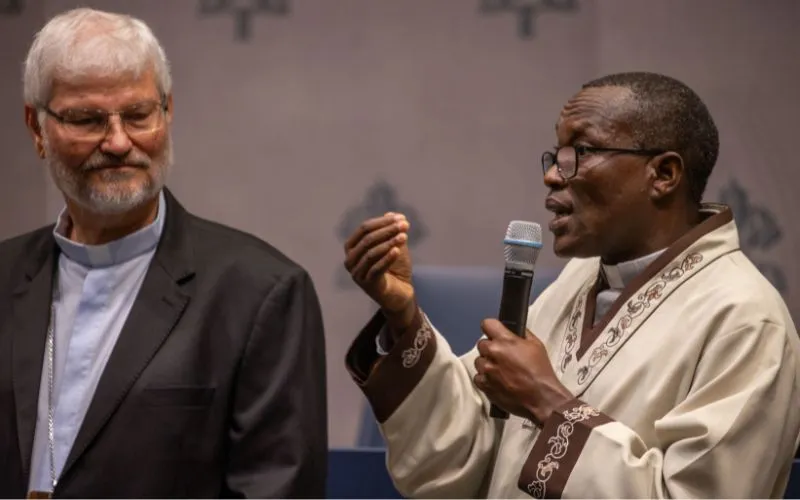 Credit: Daniel Ibáñez
Credit: Daniel Ibáñez Credit: ACI Africa
Credit: ACI Africa Credit: Daniel Ibáñez
Credit: Daniel Ibáñez Credit: ACI Africa
Credit: ACI Africa Credit: Daniel Ibáñez
Credit: Daniel Ibáñez Credit: Daniel Ibáñez
Credit: Daniel Ibáñez Credit: ACI Africa
Credit: ACI Africa Credit: Daniel Ibáñez
Credit: Daniel Ibáñez Credit: Consolata Missionaries
Credit: Consolata Missionaries Credit: Consolata Missionaries
Credit: Consolata Missionaries Credit: Consolata Missionaries
Credit: Consolata Missionaries